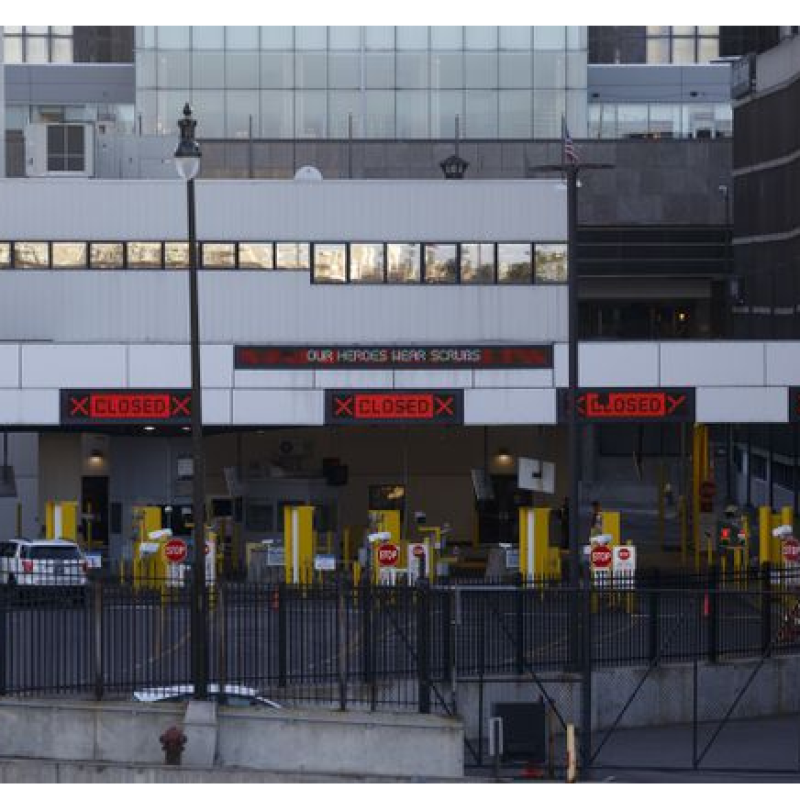News
Canada, U.S. in talks to extend border closures amid pandemic, sources say

U.S. and Canadian officials are holding talks that will almost certainly lead to an agreement to keep the land border closed to non-essential travel for at least another few weeks, sources say.
The border between Canada and the United States was restricted to all non-essential travel on March 21, for a 30-day period that ends April 19, in an effort to stem the spread of COVID-19.
The partial closing of the border did not affect essential travel, including truck and rail traffic carrying food and goods, key to supply chains, as well as travel to work. Flights between both countries continue but have been restricted. The border closing also applied to migrants crossing the border by foot at informal crossings, but not to temporary foreign workers who are needed by Canadian farmers and other food production.
Sources, who have knowledge of the talks, say U.S and Canadian officials are discussing whether to reopen the border to non-essential travel, although they say it’s very unlikely that those restrictions would be lifted. The sources say the discussions are more focused on whether to extend the border restrictions for two weeks or another 30-day period. The Globe and Mail is not revealing the names of the sources because they were not allowed to publicly discuss the bilateral negotiations.
Perrin Beatty, president of the Canadian Chamber of Commerce, said an extension of the restrictions make sense as long as the novel coronavirus remains a threat on both sides of the border.
Mr. Beatty said the border measures were put into effect for valid medical reasons, but the U.S. and Canada took into account the need to ensure the flow of goods across the Canadian, U.S. and Mexican borders.
“Our sense is that for business purposes, the border is quite fluid," he said. “Obviously for Canadian businesses, we need to be able to get supplies from other countries, and it is particularly important for North America, now that there are problems with supply chains in other parts of the world.”
Mr. Beatty said Canadian supermarket executives, for example, have told him that they are able to get farm produce from Mexico by land without any problems at the U.S.-Canada border.
“Even within Canada, we have restrictions on movement so it certainly makes sense to have restrictions at the border of your country as long as the medical threat remains high,” he said.
Mr. Beatty said the challenge ahead is to ensure that there is a national plan to restart the economy, which will likely happen on a sector-by-sector or region-by region approach.
“Our supply chains that run across provincial boundaries are more important than ever before, because many of our supply chains have been disrupted. So having co-ordination and being able to source supplies from provinces, where restrictions may be more strict, is going to be critical for businesses that reopen in other areas,” he said.
Reopening the border for non-essential travel would not make sense at this time, especially along the Ontario and Quebec borders. New York and Michigan have been hit hard by the COVID-19 outbreak.
Elliot Tepper, senior fellow at the Norman Paterson School of International Affairs, said health authorities on both sides of the border would support extension but he expressed concern about reports in The New York Times and other U.S. media that the Trump administration, led by White House trade adviser Peter Navarro, are pushing for partial reopening of broad sections of the U.S. economy on May 1.
“If the U.S. reopens its economy in any significant ways, and we do not, that will create a health security situation of an entirely new magnitude,” Prof. Tepper said.
“If Canada remains locked down and cautious about reopening, based on the best health expertise we have available, and right on the other side of the border, our main partner in so many ways, reopens in ways that can lead to a second wave of infection, that will fundamentally transform the border situation.”
Prof. Tepper said this would pose a problem for Prime Minister Justin Trudeau because President Donald Trump himself has indicated that he is keen to reopen the U.S. economy as he heads into an election year.
Christopher Sands, director of the Canada Institute at the Washington-based Woodrow Wilson Center, said the border measures have not been perfect, citing initial U.S. plans to post troops along the northern U.S. border and the order to stop 3M from supplying medical equipment to Canada.
But despite this, Mr. Sands said both countries have overcome the difficulties and demonstrated that they can co-operate in shared economic interests.
“The first 30 days of joint border restriction have not ended, but I think the governments should renew this arrangement. It hasn’t gone smoothly from a messaging standpoint, for which Ottawa as well as Washington bears some responsibility," Mr. Sands said. “But actions on the ground have been positive and justify an extension of the arrangement as one important tool in the box for stalling the spread of COVID-19.”
ORIGINAL SOURCE: https://www.theglobeandmail.com/politics/article-canada-us-in-talks-to-reopen-border-amid-pandemic-sources-say/












 Pamp Suisse
Pamp Suisse 


